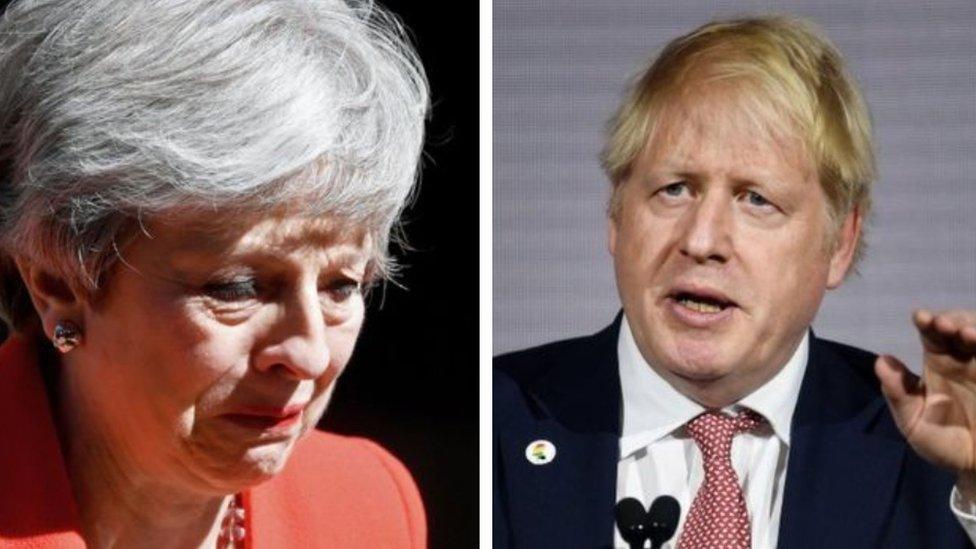Carlingford Lough: A scene of tranquillity facing fierce Brexit debate
- Published
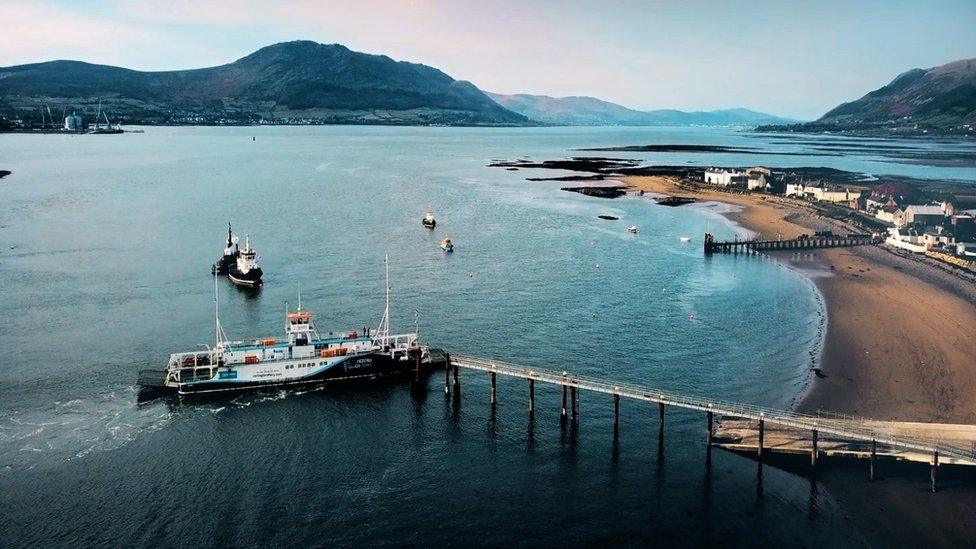
The northern side of the Lough is in the UK and the southern side is in the Republic of Ireland
Carlingford Lough is often a place of calmness - and always one of natural beauty.
It's a fjord-like finger of the Irish Sea, flanked by forested mountains.
The northern side is in the UK - and the southern side in the Irish Republic.
That means that this tranquil inlet has been, in a sense, on the front line of a fierce debate and an often fraught process.
How to keep open the border between Northern Ireland and the Republic of Ireland was possibly the most perplexing Brexit brain-teaser.
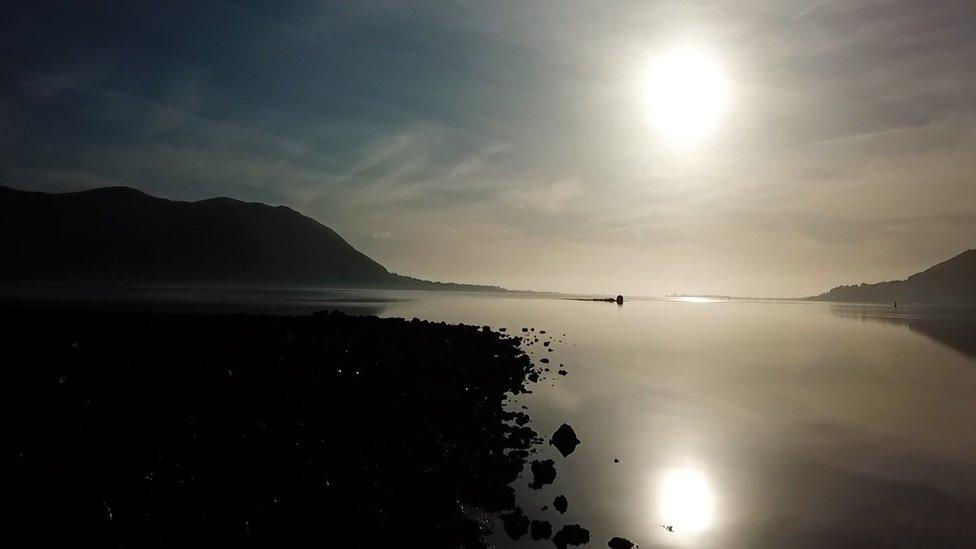
Depending on where you are in County Down, you might be quicker to cross that frontier by sea than by land.
The Carlingford Lough car ferry sails from Greencastle to Greenore in County Louth.
'Economic frontier'
There is no longer a prospect of checks being carried out on goods making that journey.
But if you are travelling on that north-south-route, and look east, you see a much bigger expanse of water - which geographically separates Northern Ireland from the rest of the UK.
Unionist politicians perceive it will now be the site of a "sea border" - an economic frontier - and that has driven their strong opposition to the EU Withdrawal Agreement.
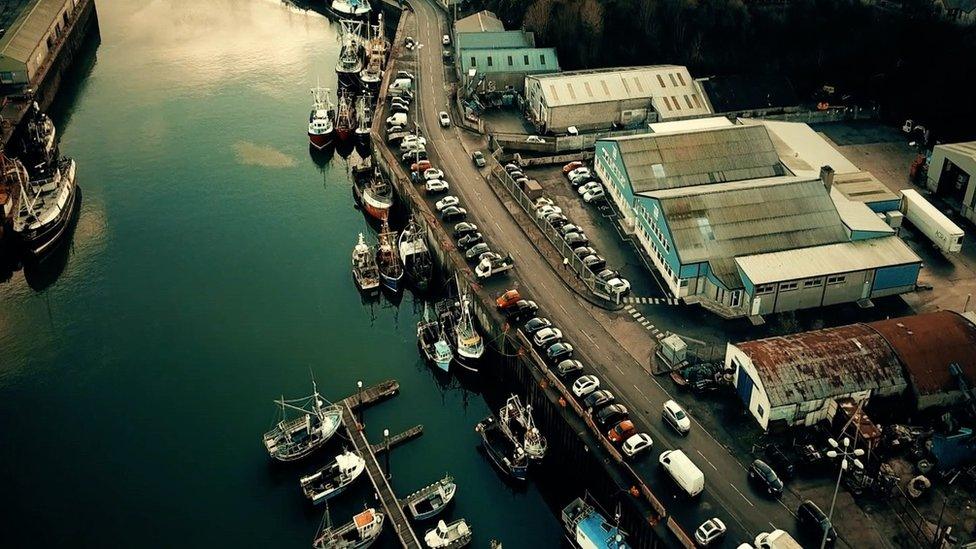
The fishing town of Kilkeel is a few miles from Carlingford Lough
A few miles from the northern ferry terminal is the fishing port of Kilkeel.
It's the home town of James Donaldson - a student in his twenties - who's a strongly committed unionist.
He voted for Brexit - but doesn't like the terms as they stand.
"We're no longer being treated as an integral part of the United Kingdom," he says.
"It's a step away from a strong union."
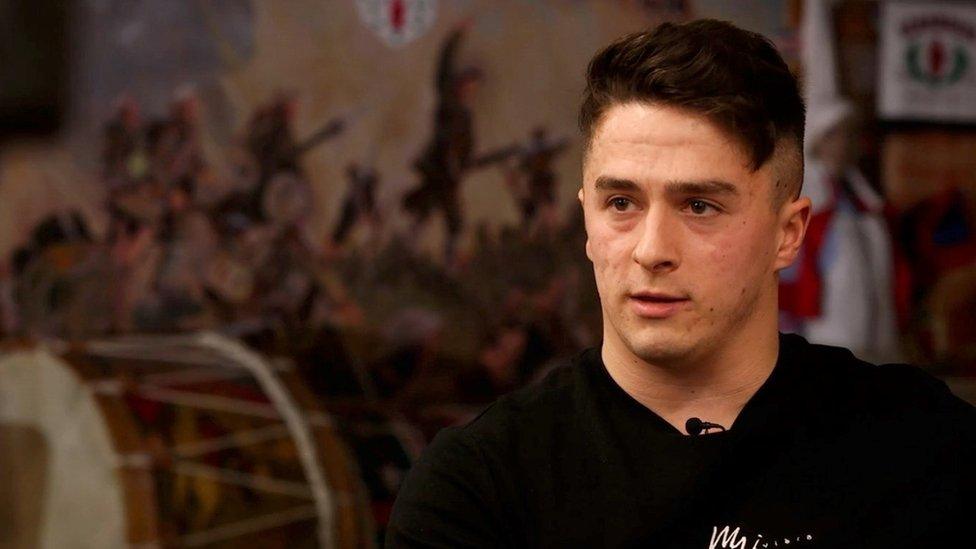
James Donaldson is optimistic a new free trade deal can be agreed
However, he does not believe the arrangements amount to a "border in the Irish Sea" - and thinks that term has been used to "demoralise unionists".
"I'm optimistic that we can get a free trade agreement that will eliminate checks.
"Then we can make the best of Brexit and be the best United Kingdom we could be - one United Kingdom, leaving together."
'Frictionless trade impossible'
Boris Johnson has suggested trade between Northern Ireland and the rest of the UK will be "unfettered".
But the EU's chief Brexit negotiator, Michel Barnier, has said the UK has agreed to checks on goods moving from Great Britain to Northern Ireland - and that frictionless trade is "impossible".
The extent and nature of controls on products coming into Northern Ireland from England, Scotland or Wales will be determined by the outcome of upcoming trade negotiations between the UK and the EU.
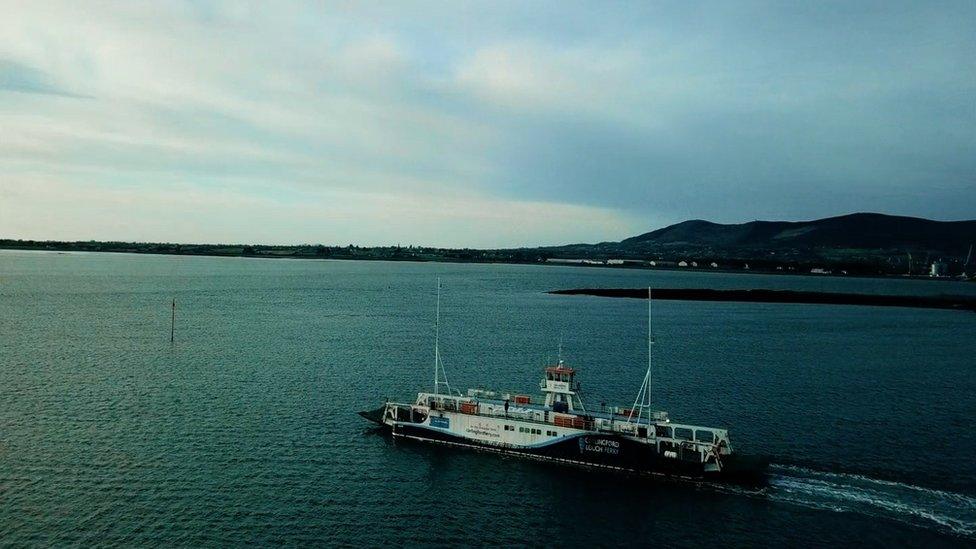
Other issues are set to become more prominent than they have been in the Brexit process so far.
The conversation about matters of citizenship and national identity is "only starting to evolve", according to immigration solicitor Sarah Henry.
She practises at Granite Legal Services in Newry - the city at the western end of Carlingford Lough.
"Brexit has opened a much greater conversation, particularly in Northern Ireland, where people have the option to identify as Irish, British or both," she says,
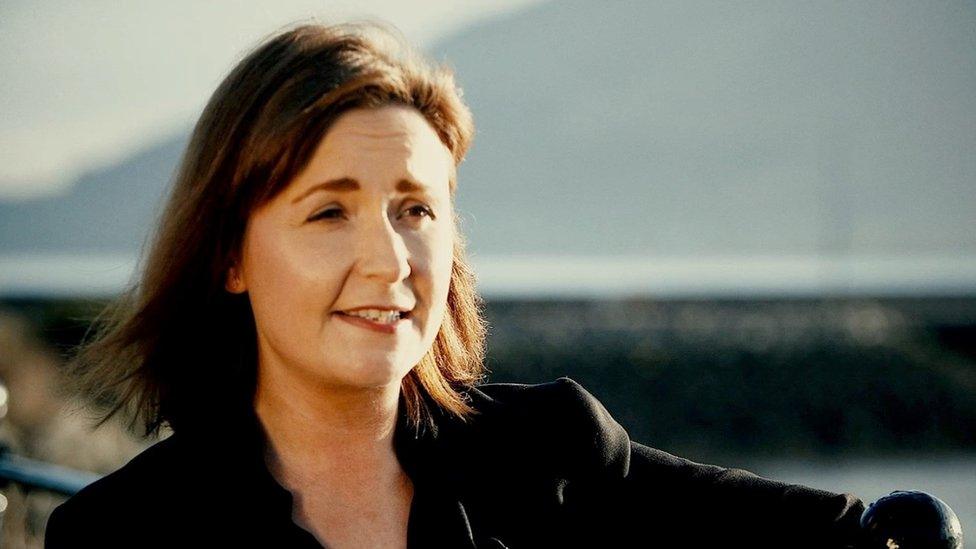
Sarah Henry says 'nothing will change overnight' on 31 January
"Immigration cases that are going through the courts at the moment have really highlighted these issues in terms of citizenship and what rights and entitlements attach to that."
Businesses in the local area - and elsewhere - are making numerous queries about what Brexit will mean for their present, and future, workforces.
Ms Henry says that while "nothing will change overnight" on January 31st, she does think there are "more questions than answers".
"People haven't fully understood the impact that leaving the EU will have on citizens' rights - it's going to bring up issues we haven't had to deal with before."
Also on the shores of Carlingford Lough, there's a house which has hosted the citizens of dozens of countries over many years.
'A language to difference'
In Rostrevor, An Cuan - which means "the harbour" in Irish - is known as a reconciliation centre, where visitors share experiences of conflict and healing.
It is owned by the interdenominational Christian organisation Youth With A Mission (YWAM) Ireland.
Its director, Jonny Clark, says Brexit has "given a language to difference".
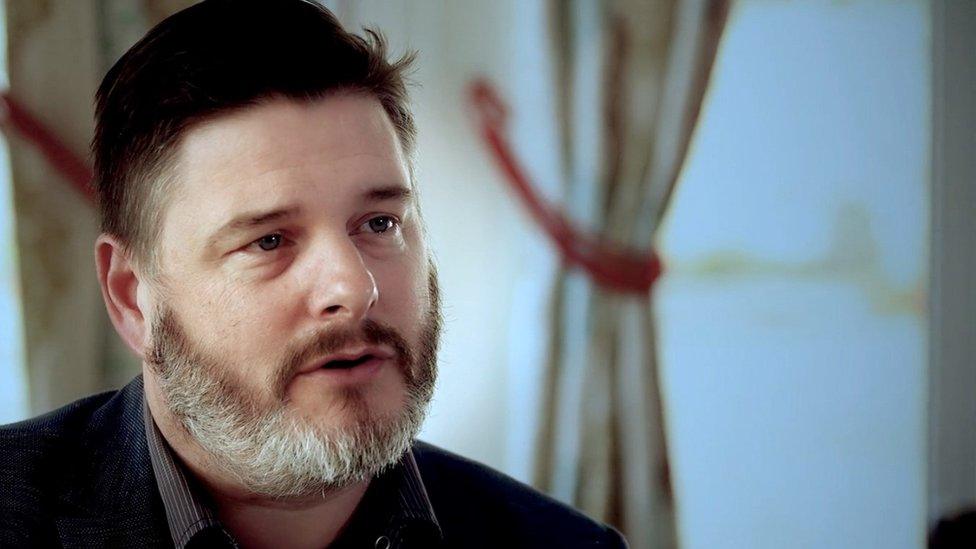
Brexit has the potential to strain relations, says Jonny Clarke
He explains: "For many Protestant people who would see themselves as British, they're more inclined to favour a sense of British identity leaving Europe behind.
"If you're an Irish Catholic nationalist, you're more inclined to see your future in Europe.
"So it has the potential to strain relations."
As part of his peace-building work, he fronts a podcast and documentary film series called "Guardians of the Flame" which highlights personal stories that demonstrate how divisions can be overcome.
'Crucial crossroads'
He believes keeping positive narratives to the fore will be critically important in a time when questions of identity are raised afresh.
"It's a dangerous time right now, and we definitely need a courageous society.
"We're at another crucial crossroads in our history.
"I hope that when we look back on this time, we'll be able to say that - regardless of the political conundrums going on - we found a way to build a better future."
- Published8 October 2019
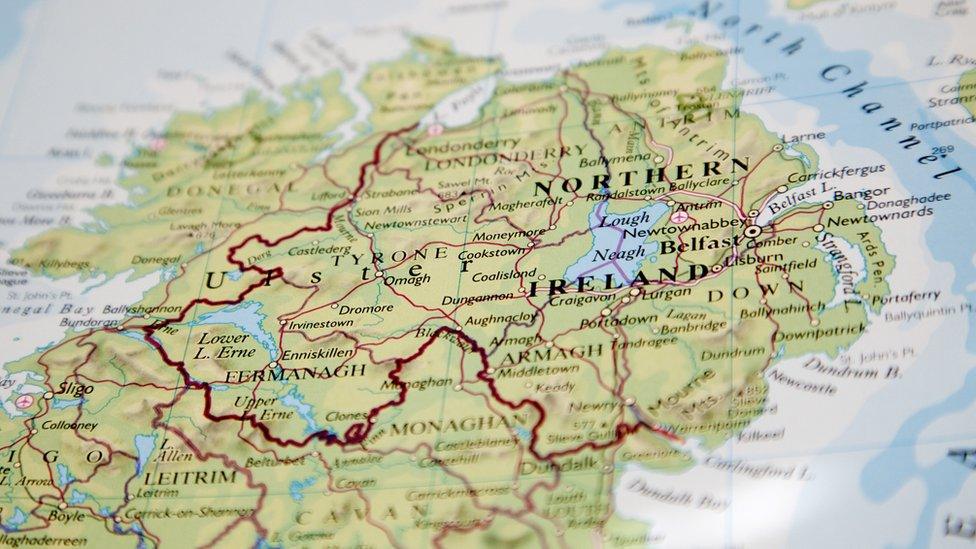
- Published9 September 2019
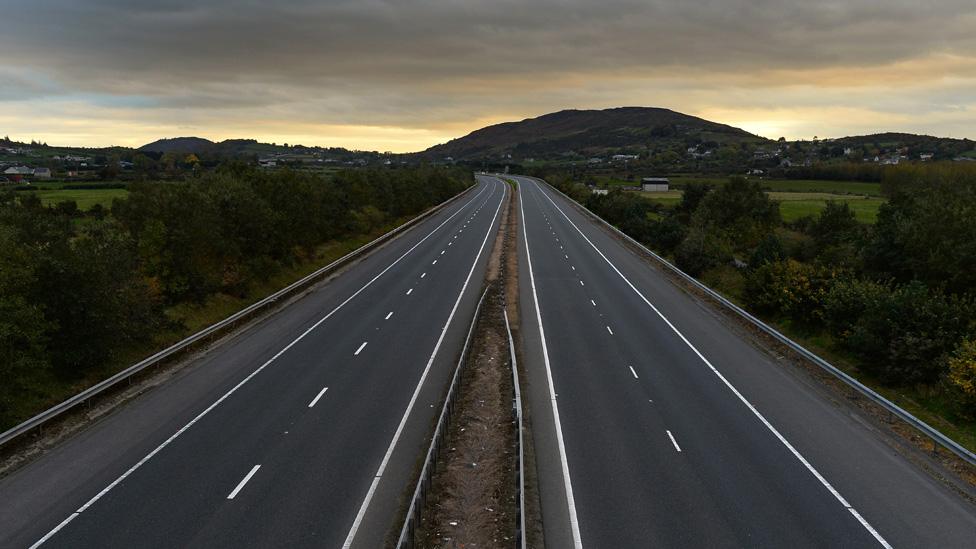
- Published31 December 2019
